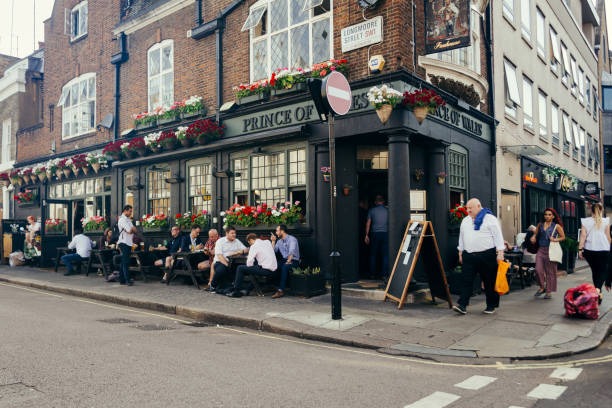When it comes to pub culture, there are few places on earth quite like London. In fact, it’s hard to say there are any. Come 5pm every day, people spill out onto the pavements for a post-work pint, while you can’t walk down a street without finding a few watering holes.
For hundreds of years, pubs have been a part of day-to-day life for Londoners as a place to socialise or to unwind after a hard day at work. But the question is, is this problematic?
Visit the outskirts of London and into the counties, and you’ll find rehab centres with many people struggling, developing an addiction, often as a result of binge drinking, social pressures and normalisation of the city’s pub culture. You can see in an alcohol rehab centre, for example, the dangers behind the charms of the London boozer.
But it’s not quite as simple as saying London’s pub culture is problematic or not. It’s a little more complex than that…
The Heart of Social Life
While we know drinking alcohol is bad for us, there’s no doubt that pubs in London are the heart of the city’s social life. It’s where people catch up with friends, network with colleagues, have first dates, celebrate birthdays and much more. They can provide a lifeline from loneliness, while in some cases, these days,they provide warmth for people who are struggling to put the heating on.
In a city in which the pace is fast and people are forever passing each other by, the pub provides a rare sense of community and belonging. It’s not home, it’s not work, it’s that space in between and it’s actually one of the few accessible spots where you can enjoy a number of hours with friends without the need for a membership or having to fork out for a meal.
The Normalisation of Drinking
A night in the pub does still carry that strong drinking culture, even though there are plenty of London pubs that have a wide range of non-alcoholic beers or soft drinks. There’s still an expectation to drink, particularly among people in city jobs and among the older generations.
That normalisation can be problematic, particularly for those who want to cut back or are in recovery, while for people new into roles or work, it can be a social pressure that starts them on a slippery slope.
After-Work Drinking and Burnout
One of the key concerns around London’s pub culture is the link between alcohol and work-related stress. In many industries, particularly finance, law, media and tech, after-work drinks are not just encouraged but often expected. These events blur the line between work and leisure, sometimes fostering unhealthy drinking habits and exclusion for those who choose not to take part.
In a high-pressure city where long hours are the norm, alcohol can become a coping mechanism. While a single pint after work might seem harmless, repeated drinking to manage stress can quietly tip into dependency.
Impact on Health and Wellbeing
The health implications of regular drinking are well-documented: increased risk of liver disease, high blood pressure, anxiety, depression, and disrupted sleep patterns. Even moderate but frequent drinking, which is common in pub culture, can take a toll over time.
Moreover, the financial cost can’t be ignored. In a city where living expenses are already high, spending £5–£7 per drink quickly adds up, contributing to financial stress and limiting other lifestyle choices.
Are Things Changing?
There is evidence that attitudes are beginning to shift. Younger Londoners, in particular, are drinking less than previous generations. The rise of alcohol-free beers, sober social events, and mindfulness movements reflect a growing desire for more balanced lifestyles.
Some pubs are adapting too, offering better non-alcoholic selections, promoting inclusive events, and creating welcoming environments for those who want to socialise without drinking.



